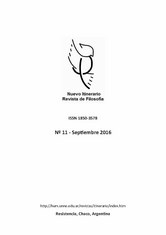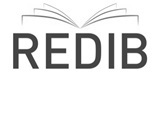Mary Astell: feminine reformism and topian conservatism
DOI:
https://doi.org/10.30972/nvt.1826004Keywords:
Mary Astell, Utopía, Reforma, Conservadurismo, FeminismoAbstract
Mary Astell's A Serious Proposal to the Ladies (1694) has received much attention among scholars in recent decades. One interpretation indicates that the type of isolated female community defended in the work can be read in a utopian key. Another interpretation, on the contrary, points out a closer link with what Michel Foucault calls heterotopy. This study proposes an intermediate reading that qualifies both interpretations. In the first place, together with a minimal description of the social, political, and intellectual field in which Astell was inserted towards the end of the seventeenth century, the nature of her public interventions as an author is reconstructed and A Serious Proposal to the Ladies is presented in its controversial context and within the wider picture of her complete work. Then, I consider to what extent A Serious Proposal does not fully conform to the regular structure of the classic utopian genre. For this, Thomas More’s Utopia is taken as a model, although Tomasso Campanella’s The City of the Sun and Francis Bacon’s New Atlantis are also taken into account. Thirdly, some reasons are given as to why the alternative of thinking of the Astellian community as a Foucauldian heterotopy is also not entirely satisfactory. Finally, the fruits of the previous discussions are collected and based on some of Karl Mannheim's classic remarks, the notion of utopia is revisited to think about Astellian feminist reformism in its conservative matrix.
References
Astell, M. y Norris, J. (1695). Letters Concerning the Love of God, London: printed for R. Wilkin.
Astell, M. [Anónimo]. (1697). A Serious Proposal to the Ladies, for the Advancement of their True and Greatest Interest, in Two Parts, London: printed for R. Wilkin.
Astell, M. [Anónimo]. (1700/17304). Some Reflections upon Marriage, Londres: Printed for William Parker.
Astell, M. [Anónimo]. (1704). Moderation truly Stated, London: printed for R. Wilkin.
Astell, M. [Anónimo]. (1704). A Fair Way with the Dissenters and Their Patrons, London: printed for R. Wilkin.
Astell, M. [Anónimo], (1704). An Impartial Enquiry into the Causes of Rebellion and Civil War in this Kingdom, London: printed for R. Wilkin.
Astell, M. [Anónimo]. (1705). The Christian Religion as Profess’d by a Daughter of the Church of England, London: printed for R. Wilkin.
Astell, M. [Anónimo]. (1709). Bart’lemy Fair or An Enquiry after Wit, London: printed for R. Wilkin.
Astell, M. (2013). Escritos feministas, (M. L. Pascual Garrido, trad.), Madrid: Maia Ediciones.
Bacon, F. (2019[1627]). La Nueva Atlántida, (M. V. de Robles, trad.), en Utopías del Renacimiento (pp. 297-348), Méjico: Fondo de Cultura Económica.
Bloch, E. (2017). ¿Despedida de la utopía?, (S. Santana Pérez, trad.), Madrid: Antonio Machado Libros.
Broad, J. (2007). Astell, Cartesian Ethics, and the Critique of Custom, en Kolbrener, W. y Michelson, M. (eds.) (2007). Mary Astell. Reason, Gender, Faith (pp. 165-180), Cornwall: Ashgate.
Broad, J. (2009). Mary Astell on Virtuous Friendship, Parergon, vol. 26, n°2, pp. 65-85.
Broad, J. (2015). The Philosophy of Mary Astell. An Early Modern Theory of Virtue, Oxford: Oxford University Press.
Campanella, T. (2019[1623]). La Imaginaria Ciudad del Sol, (A. Mateos, trad.), en Utopías del Renacimiento (pp. 183-296), Méjico: Fondo de Cultura Económica.
Davis, J.C. (2010). Thomas More’s Utopia: sources, legacy, and interpretation, en Claeys, G. (ed.) (2010). The Cambridge Companion to Utopian Literature (pp. 28-50), Cambridge: Cambridge University Press.
Devereaux, J. (2009). A Paradise Within? Mary Astell, Sarah Scott and the Limits of Utopia, Journal for Eighteenth Century Studies, vol. 32, n°1.
Duran, J. (2006). Eight women philosophers. Theory, politics, and feminism, Chicago: University of Illinois Press.
Ebbersmeyer, S. & Paganini, G. (2021). Where are the female radicals?, Intellectual History Review, 31:1, 1-6. DOI: https://doi.org/10.1080/17496977.2021.1874598.
Foucault, M. (1984). Los espacios otros, (L. G. Pérez Bueno, trad.), Astrágalo, n° 7, 1997. Recuperado de http://textosenlinea.blogspot.com/2008/05/michel-foucault-los-espacios-otros.html
Goldie, M. (2007). Mary Astell and John Locke, en Kolbrener, W. y Michelson, M. (eds.) (2007). Mary Astell. Reason, Gender, Faith (pp. 65-86), Cornwall: Ashgate.
Harol, C. (2007). Mary Astell’s Law of the Heart, en Kolbrener, W. y Michelson, M. (eds.) (2007). Mary Astell. Reason, Gender, Faith (pp. 87-98), Cornwall: Ashgate.
Johns, A. (1996). Mary Astell’s ‘Excited Needles’: Theorizing Feminist Utopia in Seventeenth Century England, Utopian Studies, Vol. 7, N° 1, pp. 60-74.
Johns, A. (2010). Feminism and utopianism, en Claeys, G. (ed.) (2010): The Cambridge Companion to Utopian Literature (pp. 174-199), Cambridge: Cambridge University Press.
Kendrick, N. (2017). Mary Astell’s Theory of Spiritual Friendship, British Journal for the History of Philosophy, Vol. 26, 1-20. DOI: https://doi.org/10.1080/09608788.2017.1347869.
Kinnaird, J. K. (1979). Mary Astell and the Conservative Contribution to English Feminism, Journal of British Studies, Vol. 19, n° 1, pp. 53-75.
Kolbrener, W. (2007). Astell’s “Design of Friendship” in Letters and A Serious Proposal Part I, en Kolbrener, W. y Michelson, M. (eds.) (2007). Mary Astell. Reason, Gender, Faith (49-64), Cornwall: Ashgate.
Mannheim, K. (2019). Ideología y utopía. Una introducción a la sociología del conocimiento, (S. Echeverría, trad.) Méjico: Fondo de Cultura Económica.
Moreau, P-F. (1986). La utopía. Derecho natural y novela del Estado, (I. Cuña de Silberstein, trad.) Buenos Aires: Hachette.
Moro, T. (1984[1516]). Utopía, (J. Mallafrè Gavaldà, trad.) Barcelona: Planeta.
Muñoz, J. E. (2020). Utopía queer. El entonces y allí de la futuridad antinormativa, (P. Orellana, trad.) Buenos Aires: Caja Negra.
Myers, J. E. (2013). Enthusiastic Improvement: Mary Astell and Damaris Masham on Sociability, Hypatia, Vol. 28, N° 3.
O’Neill, E. (2007). Mary Astell on the Causation of Sensation, en Kolbrener, W. y Michelson, M. (eds.) (2007). Mary Astell. Reason, Gender, Faith (145-164), Cornwall: Ashgate.
Pateman, C. (1995). El Contrato Sexual, (M.L. Femenías, trad.) Iztapalapa: Anthropos.
Perry, R. (1990). Mary Astell and the Feminist Critique of Possessive Individualism, Eighteenth Century Studies, Vol. 23, N° 4.
Poullaine de la Barre, F. (2002). Three Cartesian Feminist Treatises, (V. Bosley, trad.) Londres y Chicago: The University of Chicago Press.
Ricoeur, P. (2012). Ideología y utopía, (A. Bixio, trad.) Buenos Aires: Gedisa Editorial.
Smith, H. (2007). Mary Astell, A Serious Proposal to the Ladies (1694), and the Anglican Reformation of Manners in Late-Seventeenth-Century England, en Kolbrener, W. y Michelson, M. (eds.) (2007). Mary Astell. Reason, Gender, Faith (31-48), Cornwall: Ashgate.
Smith, H. L. (2007). “Cry up Liberty”: The Political Context of Mary Astell’s Feminism, en Kolbrener, W. y Michelson, M. (eds.) (2007). Mary Astell. Reason, Gender, Faith (193-204), Cornwall: Ashgate.
Venturi, F. (2014). Utopía y Reforma en la Ilustración, (H. Salas, trad.) Avellaneda: Siglo XXI Editores.
Viera, F. (2010). The Concept of Utopia, en Claeys, G. (ed.) (2010). The Cambridge Companion to Utopian Literature (pp. 3-28), Cambridge: Cambridge University Press.
Webb, S. (2020). Philosophy as a feminist spirituality and a critical practice for Mary Astell, en Metaphilosophy, Vol. 51, n° 2-3.
Witt, Charlotte (2020). The Recognition Project: Feminist History of Philosophy, en Thorgeirsdottir, S. y Hagengruber, Ruth E. (eds.) (2020). Methodological Reflections on Women’s Contribution and Influence in the History of Philosophy, Cham: Springer, pp. 19-28.
Zook, M. (2007). Religious Nonconformity and the Problem of Dissent in the Works of Aphra Behn and Mary Astell. en Kolbrener, W. y Michelson, M. (eds.) (2007). Mary Astell. Reason, Gender, Faith (pp. 99-114), Cornwall: Ashgate.
Downloads
Published
How to Cite
Issue
Section
License
Les autores ceden a Nuevo Itinerario los derechos de publicidad de sus trabajos, toda vez que hayan sido admitidos como parte de alguno de sus números. Ello no obstante, les autores retienen los derechos de propiedad intelectual y responsabilidad ética así como la posibilidad de dar difusión propia por los medios que consideren.












51.jpg)

